
Hydrographic Survey Officer
Skip to section:
About the role Career progression and training Salary and benefits Military factorHydrographic Survey Officers lead teams undertaking survey work in support of everything from beach landings to identifying routes through minefields. You will be trained as a leader, a mariner and a surveyor. Your career will be diverse and challenging with regularly changing roles both within and outside the hydrographic survey trade.
- ServiceNavy
- SpecialisationIntelligence, IT and Communications
- LocationDevonport
-
Starting Trade Training$65,075
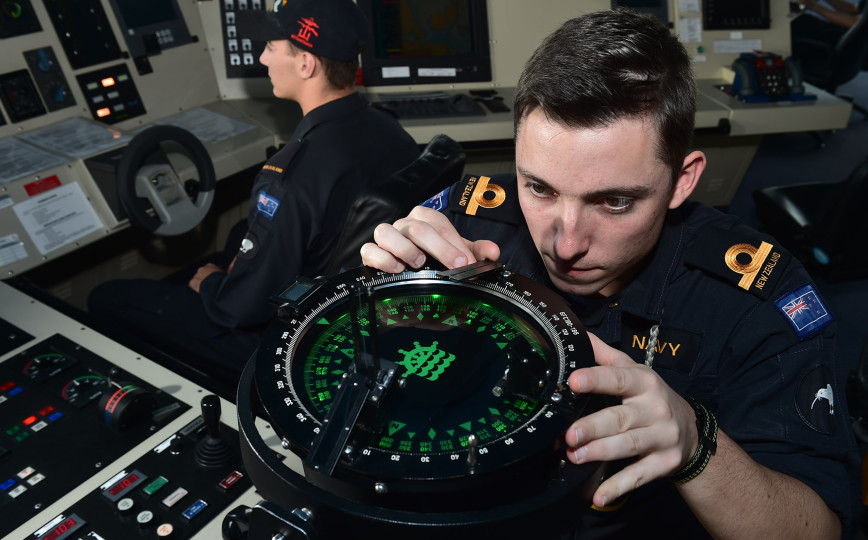
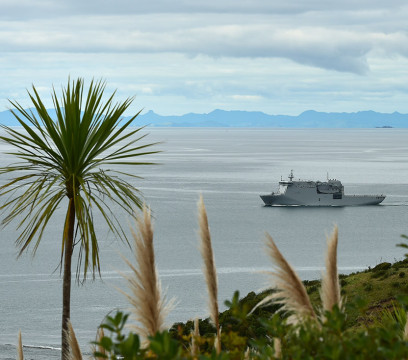
About the role
Hydrographic Survey Officers are qualified in all aspects of military hydrography. Accurate, up-to-date charts and geospatial information are essential to enabling operations at sea and especially in the littoral environment, ensuring hydrographers will continue to be at the forefront of operations. You will gain many technical skills in your time as a hydrographic surveyor utilising a wide range of software and hardware in a field that is rapidly evolving.
As a Hydrographic Survey Officer, your career will commence with Warfare Officer training. The skillsets you develop in the first few years of your career, alongside your Warfare Officer course mates, will be developed as you progress. On achieving Warfare Officer qualification milestones you will specialise, undertaking Hydrographic Survey Training as detailed below. Being a Hydrographer still gives you the option of one day becoming Captain of your own ship.
Discover more about hydrography as a career
Career progression and training
Career Progression
Basic Training
Job Training
Ongoing Training
Early in your career you will spend the majority of time at sea for a period of around 2 years, and will be posted to various ships alongside your Warfare Officer course mates. You will become qualified to keep watch on a number of RNZN ships, giving you some great experience as a mariner which is hugely beneficial as you begin your specialised career as a Hydrographic Officer.
Junior Officer Common Training (JOCT)
(21 weeks) Location: Devonport Naval Base
The objective of JOCT is to provide you with the core skills of military, mariner, and leadership to be an effective Officer in the Navy. The course is completed in two phases of training that train key areas of development.
Phase 1 – Introduction
This phase focuses on ‘followership’ and teamwork. Trainees are instructed in basic service knowledge, discipline, parade, and kit preparation. Physical Training will be conducted at all times throughout training to develop a high level of physical and mental fitness that promotes morale, good health, and good habits. This phase will cover various topics including:
- Physical Fitness
- Service Knowledge
- Service Discipline
- Introduction to the Leadership Development Framework
- Damage Control Training
- Weapons Training
- First Aid
- Basic seamanship training
- Moving to advanced application
Phase 2 – Fit for Sea
The second phase of training will focus on attributes of being in the Navy in preparation for operational service at sea. Trainees will be taught about the roles and responsibilities on board an RNZN ship. Trainees will also spend time ashore conducting academic and leadership training to further develop as a Naval Officer. This phase will cover various topics including:
- Sea survival
- Ship familiarisation
- Leadership training
- Communications skills
- Defence and Strategic Studies
Officer of the Watch (OOW) Course
The aim of this course is to teach the basic principles and processes of navigation and good bridgemanship, which includes experience in the bridge simulator and culminates in assessments at sea navigating a small naval vessel.
On completion of your OOW(Basic) course you will spend time aboard a navy ship getting platformed endorsed and putting your new skills into practice, or commence your tertiary studies if you are entering on the University scheme of training. This on-the-job training is aimed at preparing you in a practical sense for the OOW(Advanced) course. You will also progress your OOW task book which is a written record of your progress, training and development.
The OOW(A) course is 16 weeks and covers navigation, bridgemanship and training in basic warfare skills. On completion of that you will then return to sea to get qualified by completing the task book and gaining your OOW (A) Certificate or, if posted to a Frigate, an OOW (Warfare) Certificate. You will then post as a qualified Officer of the Watch to complete your core job as an Officer of the Watch on any naval ship.
Royal Navy Exchange
There is currently an exchange program in place with the Royal Navy, with which you could be posted to one of the survey ships of the UK Navy for a two year period. This is a great opportunity to gain more surveying experience, as well as travelling to locations in which the RNZN rarely operates.
International Hydrographic Organisation CAT-B
Once you have consolidated your OOW training, you will head to HMAS PENGUIN in Sydney or HMS Drake in the UK to conduct your first Hydrographic Surveying course. The H2 Course is accredited as a FIG(International Federation of Surveyors)/IHO Category 'B' Hydrographic Surveying Course. The course is designed to provide students with the theoretical and practical knowledge required to carry out surveying tasks ashore and afloat. On successful completion of the H2 Course, students will be awarded a Certificate of Completion and will be graded as a Hydrographic Surveyor Grade 2.
Prior to the award of the FIG/IHO Category B qualification all students are required to complete a Field Proficiency and Experience Competency Log.
To consolidate your skills, you will likely be posted into a Hydrographic Surveying role in the Auckland region. This will involve short term survey activities which could include beach surveys, small boat operations, use of autonomous vehicles (underwater and aerial), offshore surveying on a ship, and participating in international exercises, both within NZ and overseas.
Internation Hydrographic Organisation CAT-A
Once you have become more senior, normally around the 10 year point in your career you will be able to conduct further Advanced Hydrographic Surveying training in the form of the H1 course held at HMS DRAKE in Plymouth, UK. This is another 6 month course and gives you the skills and qualifications to be able to be in charge of a Hydrographic Survey. This course also gives you an equivalent civilian qualification in the form of a post-graduate diploma in Hydrographic Surveying.
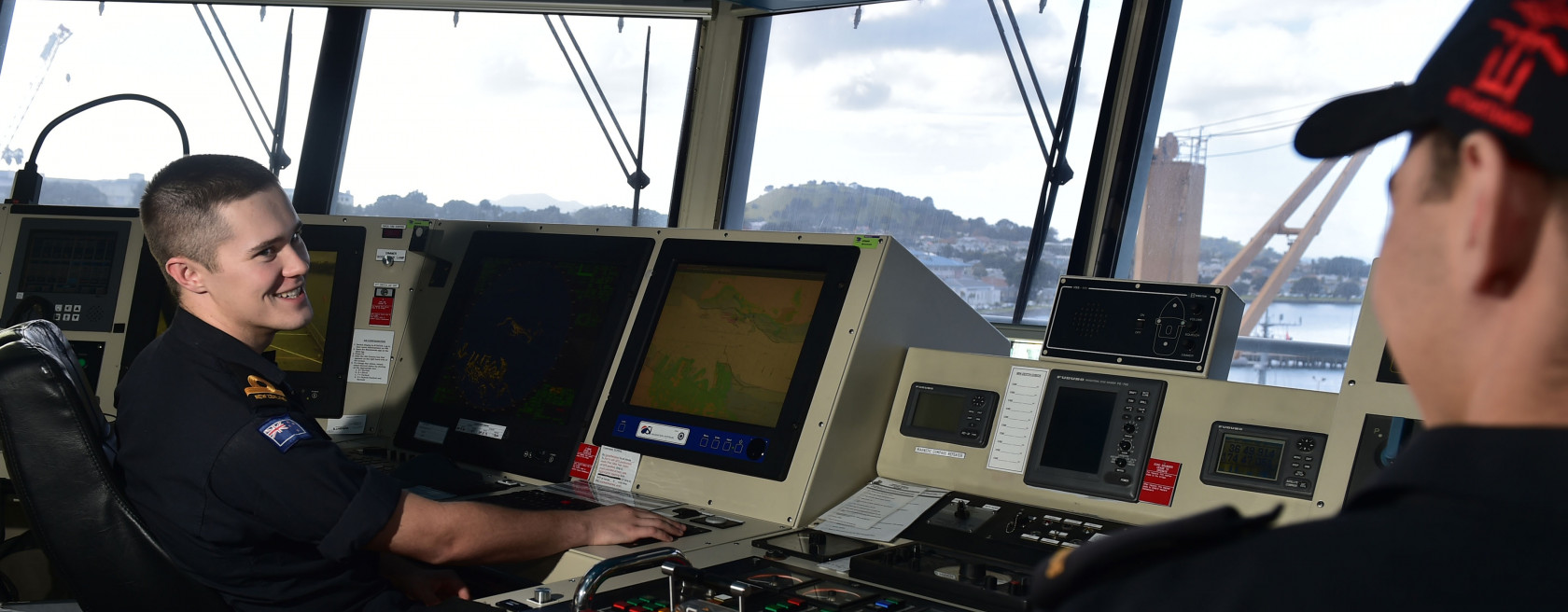
Salary and benefits
Careers in the Navy are well-rewarded, as well as being diverse and exciting. As you become more experienced and move up through the ranks, gaining additional skills and qualifications, you will see your salary rise accordingly.
$50,597
Under Initial Training
$65,075
Starting Trade Training
$169,941
Future Potential Earnings
Figures updated on July 1st 2023
Military factor
Earn a competitive salary while training or learning your trade, along with additional allowances for time spent in the field, at sea, overseas, or deployed on operations.
In addition to salary and allowances, other benefits of joining the New Zealand Defence Force include:
Access to your Service marae or tūrangawaewae
Sponsored tertiary study programmes at all levels
Free access to gyms and swimming pools on camp and bases
Opportunities to travel
Free and subsidised medical and dental care
Subsidised food and accommodation on camps and bases
Free and subsidised insurance cover
Help to buy a home and save for retirement
Entry requirements
Basics
Education
Fitness and Medical
Citizenship
Period of Service
- Be a minimum of 17 years of age upon entry.
- Be free of any criminal convictions.
- Pass an Officer Selection Board.
NCEA Level 2 certificate.
Find out more about the NCEA levels and certificate requirements
- You must be medically fit for service.
- You must meet the minimum entry fitness standards.
- Colour perception restrictions may apply.
There are strict citizenship and security requirements to gain the TSV security clearance required for this trade. You must be free of any criminal convictions.
Find out if you’re eligible here.
There may be a return of service period for this trade.
Please contact our 0800 number or talk to your Candidate Experience Facilitator for more information.
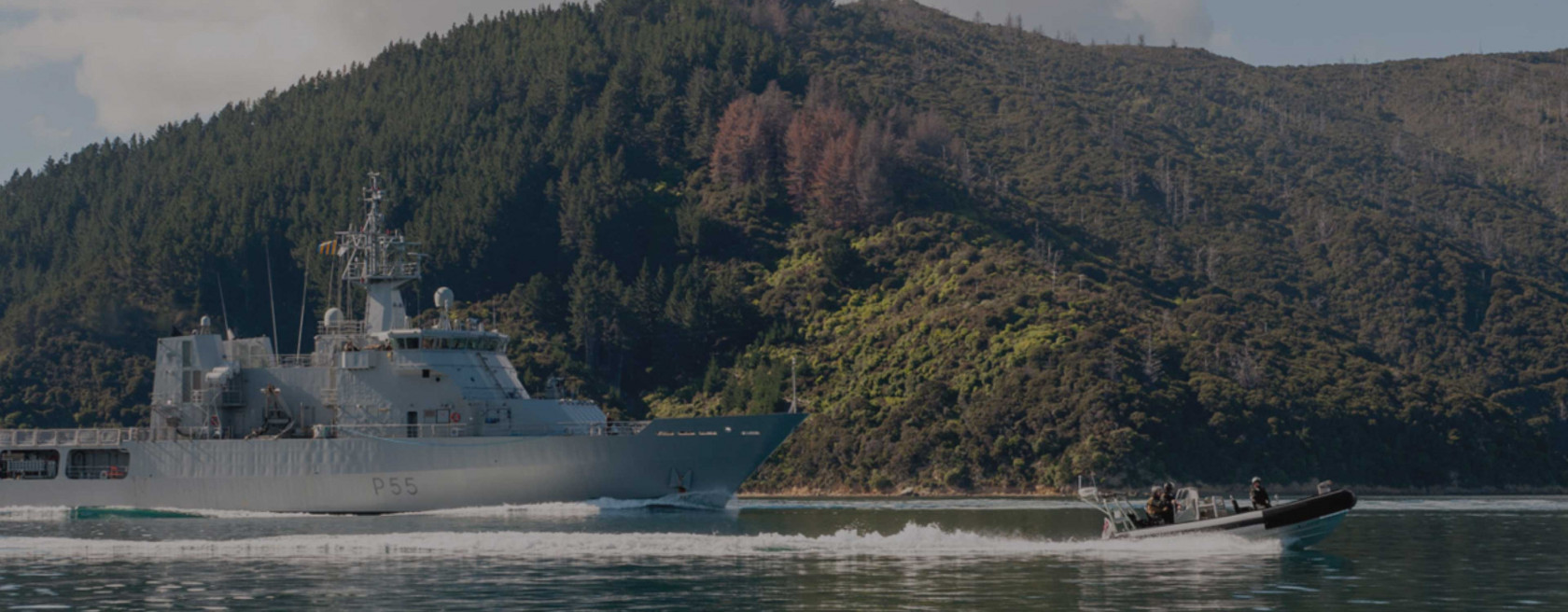
Ready to start your Navy career?
Other jobs you might like
You can also browse jobs by specialisation to narrow down your search.

Applications Open
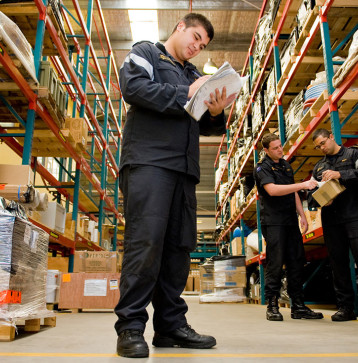
Applications Open
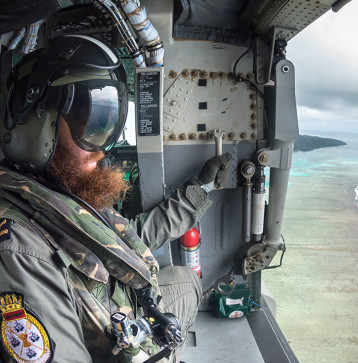
Applications Open
